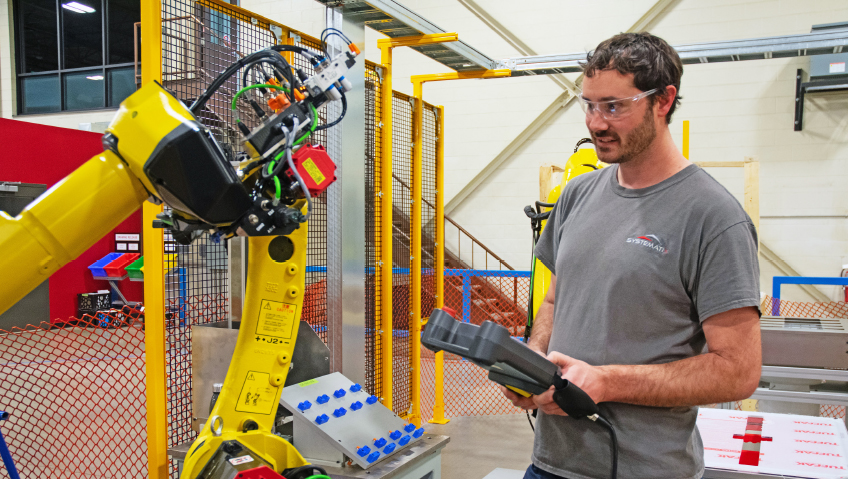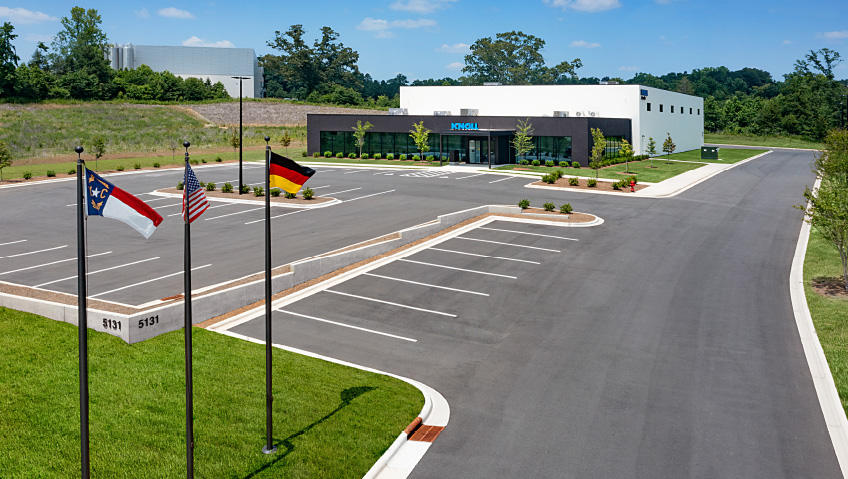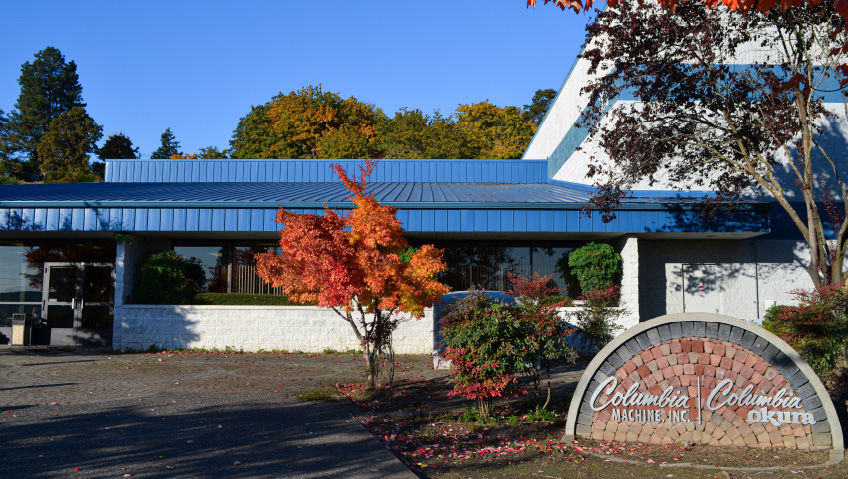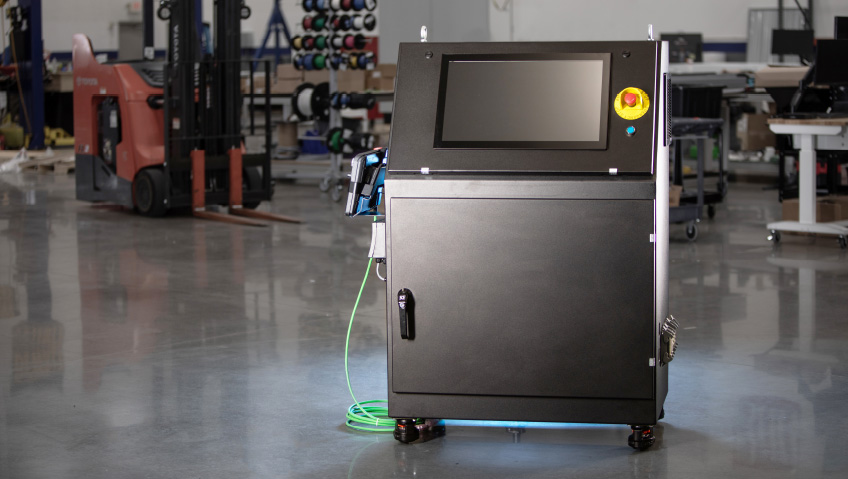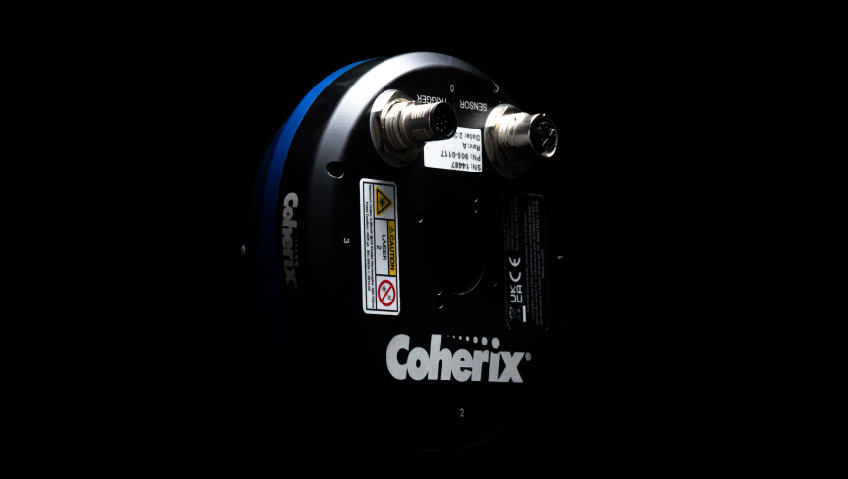Much remains the same at Samuel Automation in Waterloo, Ontario since the firm was profiled April 2023 in Manufacturing in Focus. The company, which custom-designs and manufactures automation solutions for industrial and manufacturing clients, is still sharp, focused, and innovative. The biggest change has been a move into new markets, evidence of its commitment to growth.
Samuel Automation was created when three separate businesses—Systematix and RAMP of Waterloo, Ontario and CAID Automation of Tucson, Arizona—were united under a single identity by parent firm, Samuel, Son, and Co., a venerable metal and industrial product manufacturer, distributor, and processor, based in Oakville, Ontario.
“We are formed by three independent companies that were acquired by Samuel,” says Octavio Gonzalez, Vice President of Operations at one of the locations. “When you look at the differences between the three companies, they are almost non-existent. Each shares the same goal of providing high-performance automation solutions to help our customers,” he adds.
Smart solutions
Samuel Automation’s solutions cover a wide range of areas in industrial automation, including testing, packaging, inspection and quality control, component assembly, material handling, Autonomous vehicles (AGVs), and mobile robots (AMRs). Depending on client specifications and intended use, solutions might encompass advanced motion, high-end vision, high-speed conveying systems, a wide range of sensors, software, and data collection tools including remote monitoring.
The company self-performs the majority of the work. “We do most of the engineering ourselves,” says Gonzalez. “We might buy some off-the-shelf components for integration, but the core of the engineering is done here within our companies. We cover all stages of design and machine building, including mechanical and electrical design, machine assembly and wiring, programming, debugging, performance tests, and final installation. Although we rely on previous experience and designs and we use that experience as we execute new jobs, it’s always custom automation,” he adds.
Transportation/automotive, life sciences, consumer products, and alternative energy are the main markets served by the company. Its transportation-related work ranges from systems for complex automotive assembly lines with a focus on screw driving, part marking, pressing, part feed systems, gasket, and seal insertion to inline quality management solutions, a category that encompasses vision inspections, continuity testing, leak and flow testing, and part track and trace.
For the life sciences sector, the company offers process management solutions, new product launch scale-ups—involving creating semi-automated, value-engineered modular systems that can be scaled up as production or demand increases at the client’s plant—fully automated assembly, and testing.
In the consumer product realm, Samuel Automation excels at complex assembly automation solutions. The firm has the requisite experience and equipment to build machines capable of assembling “products of almost any size.” Specific areas of automation expertise for consumer products include gauging and calibration systems, cleanroom systems, labelling and packaging solutions, dispensing, and filling solutions, laser welding and marking systems, and turnkey assembly systems.
When it comes to alternative energy, the company is venturing into hydrogen fuel cell assembly and electric vehicle (EV) battery assembly, a wise strategy, given the importance of renewable energy and the emergent trend among corporations to set sustainability goals.
An eye on expansion
While the company’s existing offerings cover a wide array of sectors, the team is eager to expand its reach even further. There are plans to consolidate the firm’s presence in certain industries and enter into some new ones.
“Samuel Automation has been growing in the AMR market,” notes Gonzalez. “As a company, we have been able to present ourselves as the better option for our customers. There have been situations where customers, who have deployed AMR projects with competitors, have reached out to us for re-engineering and [re-deployment].”
In addition to this, the company is “venturing into the mining sector with a couple of projects being executed at the moment,” he continues. “Additionally, the company has also started work on a line for carbon capture technologies.”
Partnering for success
Each business within the Samuel Automation fold has its own particular specialities. Systematix, for example, excelled at complex assembly and advanced vision solutions for manufacturing or industrial operations; CAID does a great deal of automation work for medical and pharmaceutical clients; and RAMP is heavily involved in AMR and carbon capture technology.
The firms work together on occasion or even partner with companies within the wider Samuel, Son, and Co. group. This arrangement benefits everyone: clients can take advantage of the collective services instead of having to farm out different elements of their project to multiple companies, while sales staff can offer the one-stop shop capabilities to draw new clients and increase revenue.
Much of what Samuel Automation does is intended to enhance plant floor productivity and efficiency, but the firm has a broader vision in mind. Its solutions can also boost workplace safety, says Gonzalez, citing examples where operators have been manually handling heavy parts while offloading machines. In a case like this, the company has provided solutions to eliminate human exposure to hazards with the use of robots and automation, “addressing operational safety risks in this way,” he points out.
Leading-edge tech
While Samuel Automation purchases state-of-the-art devices and components to be integrated, the firm has also developed some technological innovations of its own. In-house solutions include MAVIX Machine Vision Software, which uses a multi-camera setup, AI algorithms, and advanced proprietary software to conduct high-speed part inspections to detect qualitative or quantitative flaws on production.
SPMX is another proprietary creation that employs process monitoring software, reporting tools, and data collection for quality management. As well as establishing new markets, Samuel Automation is eager to develop more in-house solutions, says Gonzalez, some of which might involve artificial intelligence (AI). To this end, the company has been exploring the use of AI in its vision systems and has “successfully deployed AI for a couple of projects already within the vision realm.”
A strong team
All told, the company employs roughly 150 people across all the firms within Samuel Automation. Anyone looking for work here needs to have the proper educational background and technical skills, plus a few other traits: beyond academic achievement and expertise, the company is interested in what drives the new talent. “Are they up to the challenge of learning, solving, helping, and making the organization stronger?” says Gonzalez.
Commitment and loyalty are greatly appreciated too. The company understands the importance of “developing our own talent,” and advancing gifted people up the ranks, he says.
New and veteran employees alike are expected to embrace the company’s core values of integrity, respect, agility, courage, and ownership. Clearly, staff members have been receptive to this message, as the company has been earning industry kudos. In 2022, two company employees made the ‘Top 10 Under 40’ program compiled by Manufacturing AUTOMATION magazine; two other employees also made the list last year. Winners are selected on the basis of work ethic, leadership abilities, enthusiasm for education and training, involvement in industry associations, and commitment to safety, sustainability, and innovation.
Besides recognizing some of Samuel’s youthful employees, the magazine bestowed a lifetime achievement award on Senior Controls and Vision Integrator Michal Goc last year. This award is intended to “celebrate trendsetters and legends in the industrial automation space,” according to Manufacturing AUTOMATION. The publication noted that Goc was a driving force behind the MAVIX machine vision solution.
Hiring had been the company’s biggest challenge, and to this end, Samuel Automation worked hard to “develop our own pool of resources by getting younger blood into the organization and helping get them trained. It’s an investment for us; it takes years to get people to where they need to be, but it’s paid off,” says Gonzalez.
The firm has apprenticeship programs for hands-on positions such as electricians and machine tool builders, and participates in co-operative education programs as well. In a co-op program, university or college students spend time working for the company while completing their studies. Co-op programs allow students to gain real-world experience, earn money, and possibly secure a future full-time job after graduating.
Samuel Automation plans to remain in growth mode for the foreseeable future. “We have a very aggressive plan of growth, and that’s what we are focusing on,” says Gonzalez. “We are hoping to become a more recognizable name since we have transitioned from three individual companies to Samuel Automation.”

